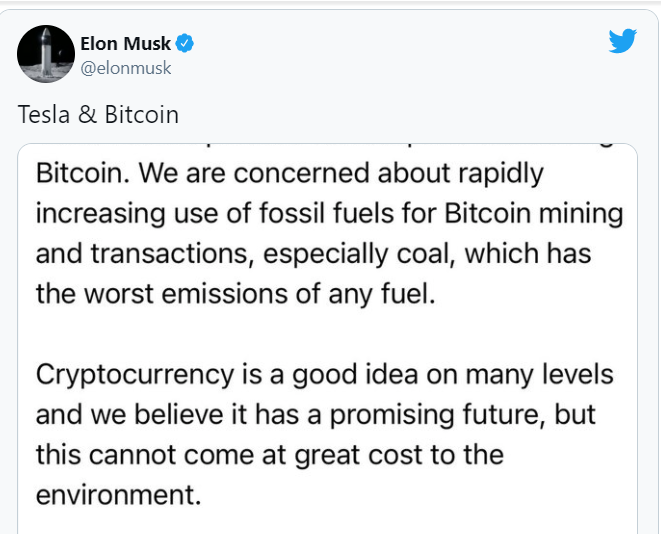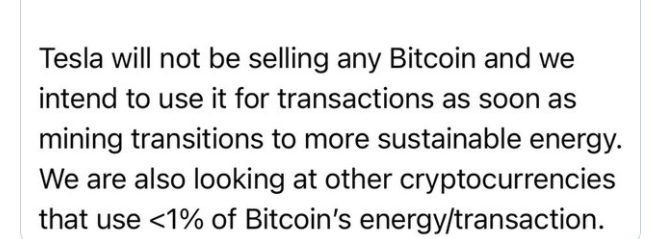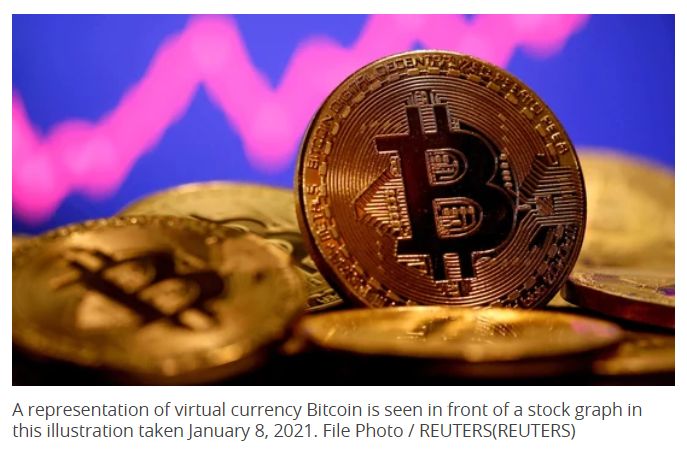Mining Bitcoin and other cryptocurrencies could leave adverse impacts on the environment, some fear. Tesla CEO Elon Musk said, “We are concerned about rapidly increasing use of fossil fuels for Bitcoin mining and transactions, especially coal, which has the worst emissions of any fuel.”
Tesla CEO Elon Musk, in what can only be called a sudden “U-turn”, announced late on Wednesday that he was reversing course on the decision to use Bitcoin as an acceptable form of payment for the purchase of vehicles. Citing climate change concerns, Musk declared that the electric vehicle manufacturer is suspending purchases with the cryptocurrency, sending its rates down a free fall.
Elon Musk, the chief executive officer of Tesla, took to his official Twitter handle to post a statement: “We are concerned about rapidly increasing use of fossil fuels for Bitcoin mining and transactions, especially coal, which has the worst emissions of any fuel.”


Mining Bitcoin and other cryptocurrencies could leave adverse impacts on the environment, some fear. Here’s the gist of the argument:
Energy-intensive process
Bitcoin is a cryptocurrency, a decentralised digital currency created as a reward for a process known as ‘mining’ — which involves using computers to solve complex mathematical algorithms. As the currency was mined more and more, the algorithms kept getting longer and more complex, and soon average computers failed to keep up. Special computers with colossal processing powers now go into mining Bitcoin. Naturally, these consume a massive chunk of the electricity supply. It is an immensely energy-intensive process that currently often relies on electricity generated with fossil fuels, particularly coal. A 2021 estimate from the University of Cambridge suggests bitcoin consumes more than 178 (TWh) annually, ranking it in the top 30 energy consumers if it were a country.
Adverse impact on global temperatures
Moreover, studies claim that Bitcoin stands a significant chance to single-handedly drive global warming, producing enough carbon-dioxide emissions to push the global temperature “above 2°C within less than three decades.”
At current rates, such bitcoin “mining” devours about the same amount of energy annually as the Netherlands did in 2019, the latest available data from the University of Cambridge and the International Energy Agency shows.
Musk’s tweets “inevitable”, investors say
News agency Reuters quotes a few investors who cast aspersions on Tesla’s purchase of Bitcoin months ago.
“We are of course very concerned about the level of carbon dioxide emissions generated from bitcoin mining,” Ben Dear, CEO of Osmosis Investment Management, said in February, shortly after Tesla’s bitcoin holdings became public. Osmosis is a sustainable investor managing around $2.2 billion in assets that hold Tesla stock in several portfolios.
Currency trading analysts said Musk’s tweets on Wednesday were inevitable.
“The environmental impact from mining bitcoins was one of the biggest risks for the entire crypto market,” said Edward Moya, a senior market analyst at currency trading firm OANDA. “Over the past couple of months, everyone disregarded news that Bitcoin uses more electricity than Argentina and Norway.”
Mark Humphery-Jenner, an associate professor of finance at the University of New South Wales, said he was more concerned about Tesla management’s precipitous decision-making, given the environmental concerns were well known “before Tesla accepted bitcoin.”
However, Elon Musk maintains that he still remains a strong believer in cryptocurrency. “We are also looking at other cryptocurrencies that use <1% of bitcoin’s energy/transaction,” he tweeted.
Elon Musk had earlier in February said Tesla purchased $1.5 billion in Bitcoin and planned to accept it as payment for the purchase of electric vehicles. This chalked up a sort of legitimacy to the digital currency, which many were eyeing with suspicion until then. Indeed, Tesla’s surprise announcement acted as a visible catalyst in the cryptocurrency movement, sending Bitcoin’s rates up 16% that day, the biggest one-day gain in quite a while. Many considered it as a sign of cryptocurrency’s increasing acceptance as a form of payment and investment.
However, Elon Musk’s decision on Wednesday to suspend Bitcoin purchases for Tesla vehicles, an announcement as sudden as the earlier, sent shockwaves through the community. This time, Bitcoin dropped as much as 15% in Asian trading, sliding below $50,000, before paring some of the drops, news agency Bloomberg reported. It was down about 8% to $50,190 as of 10:53am in Tokyo. There were reports of outages at digital-token exchanges as people rushed to sell.
Article Credit: hindustantimes
